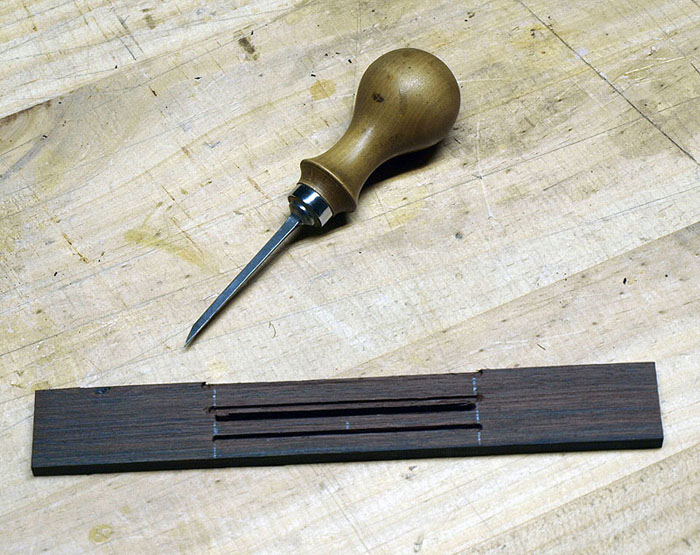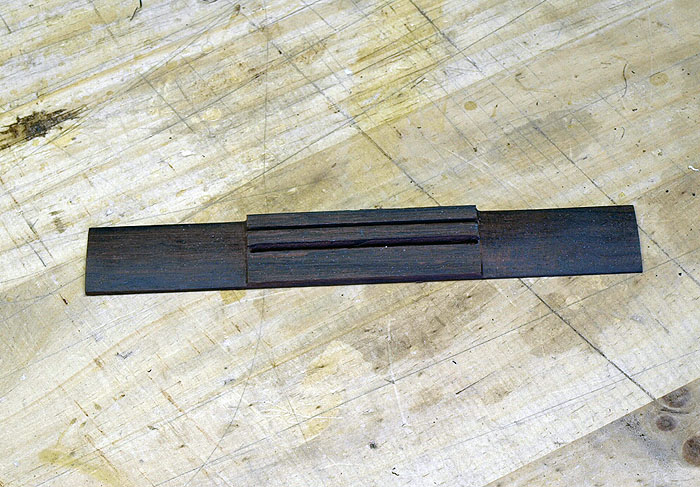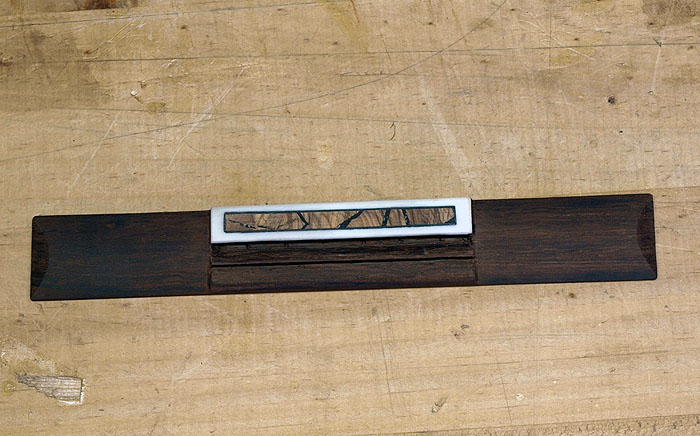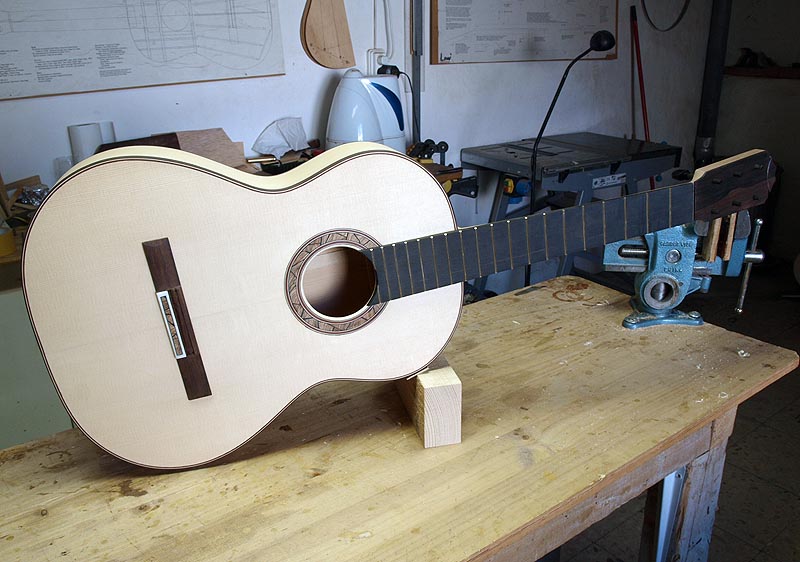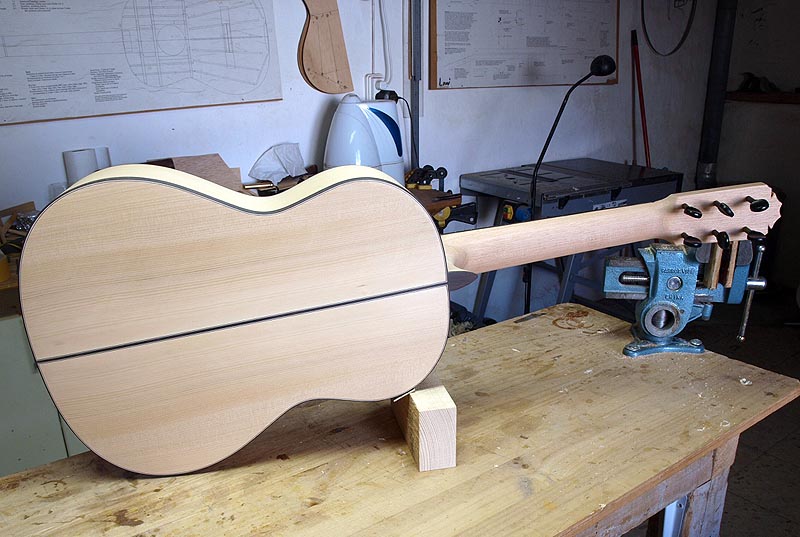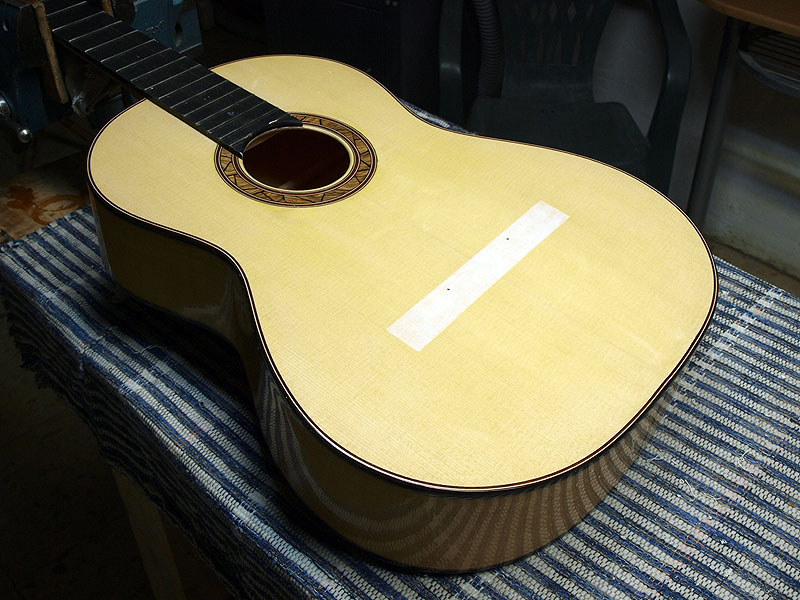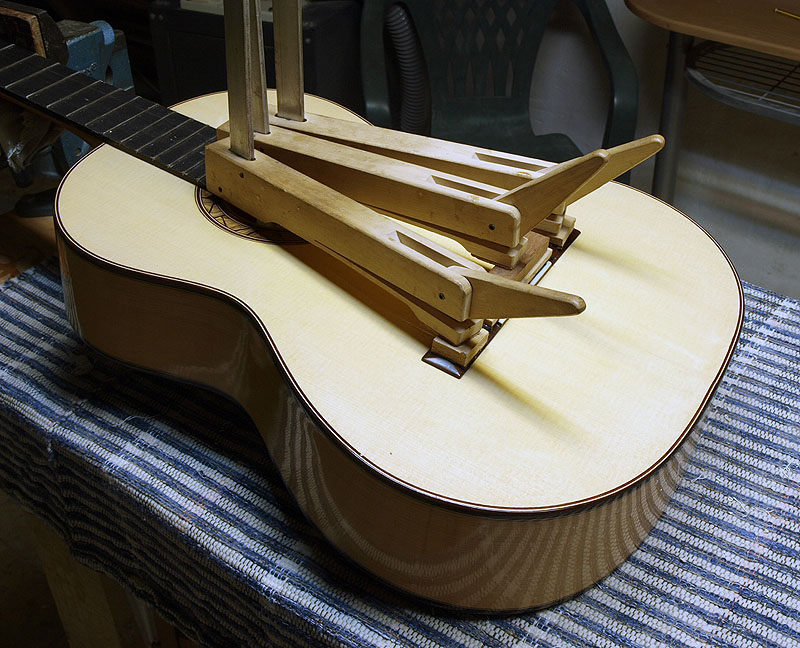|
Anders Eliasson -> RE: Building Guitar Number 100. (Oct. 10 2012 8:07:41)
|
I´m pretty sure I´m using one of your ways when I make rosettes. [8D]
I can see that the thread is being followed. Around 100 hits a day is a lot, so I´m relaxed and happy that my effort is being used. Because it is a lot of work. Anyways, we´re close to the final chapter.
So now its time to get serious... Really serious:
The final check of the thickness of the soundboard.
With a Hacklinger guide, I check the final thickness of the soundboard after the final sanding. There´s still time to do little corrections. IMHO, if you dont do this, you´re building guitars in the blind and you cannot control your output. We ALL make the edges thinner after gluing the bindings. Doesn´t matter if you sand or scrape. You remove wood. This has to be taken into consideration before the assembly and its good to try to hone your skills. I take the rough part of the bindings away with a gooseneck scraper in order to concentrate on a small surface, then after that, a thin square scraper and finally a small piece of sandpaper on a very small sanding block. And SLOW is a good word to remember. And its good to have very sharp scrapers.
In general, I prefer the edges to be around 0,2mm thinner than the center of the soundboard. On the picture, you can see that it clicks on 2,1 and the edges are 1,9mm thick. Thats thin, but this piece of German spruce is hard and strong, so its pretty normal.
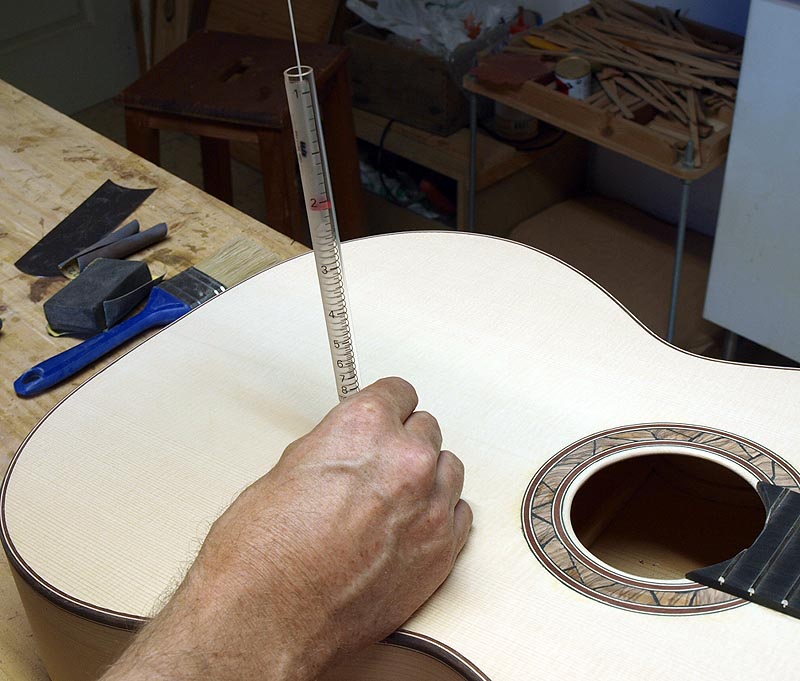
Images are resized automatically to a maximum width of 800px
|
|
|
|

